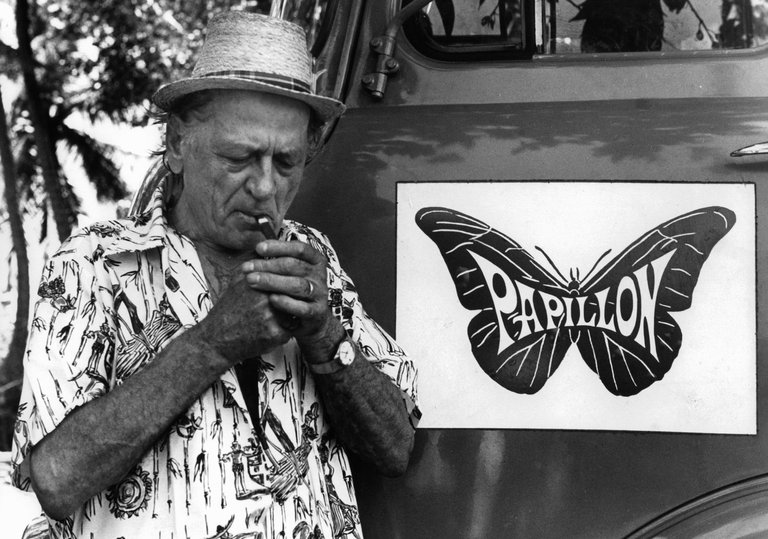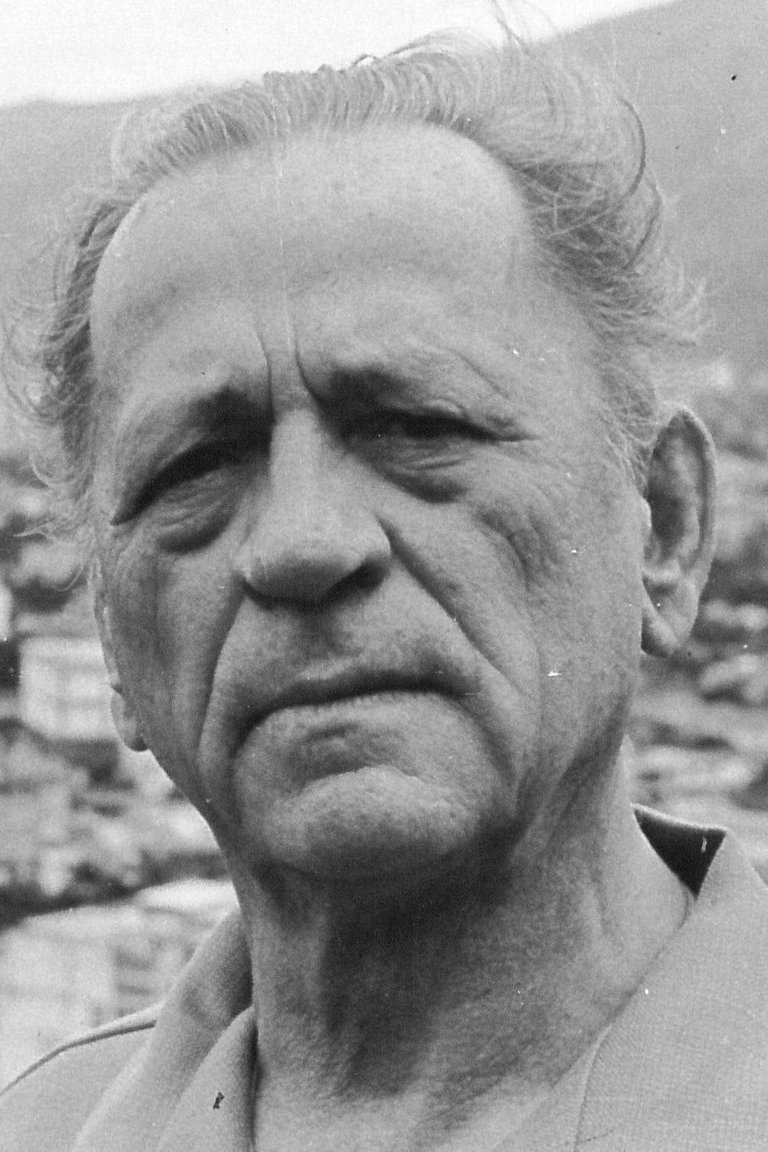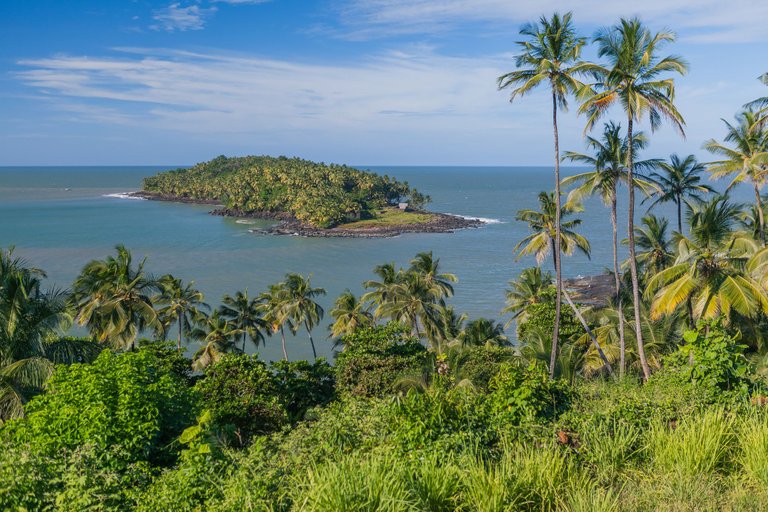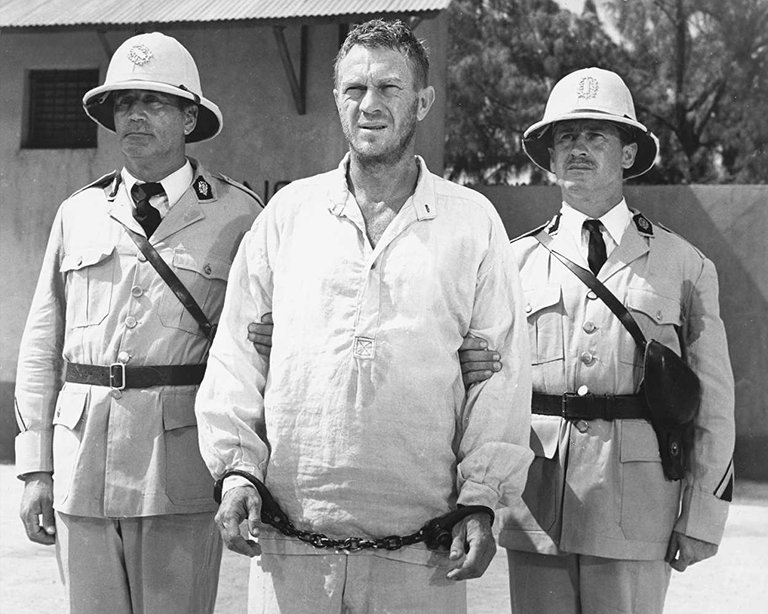
La búsqueda de libertad, quizás sea para muchos una idea abstracta, en el cual interviene la filosofía, política economía hasta la espiritualidad, sin embargo para un grupo de personas, esa palabra es el máximo anhelo de vida. Los presidiarios, aquellas personas que viven sus días, cumpliendo una condena que los obliga a permanecer dentro de una cárcel, alejado de cualquier actividad cotidiana del resto de las personas. Muchas de ellas culpables directamente de un crimen, robo, hurto o cualquier acto ilegal, pero existe un grupo de personas totalmente inocentes, que no cometieron ningún delito y que por diferentes circunstancias, tuvieron una larga pasantía por las cárceles, llenos de sufrimiento, pena y olvido en algunas oportunidades.
El día de hoy, quiero mostrarle la historia de lucha y aventura por alcanzar la libertad. Con años de sufrimiento en las costas de Suramérica, condenado a un destierro, a pasar sus días bajo condiciones muy miserables. Papillon, un francés que nunca se rindió por vivir dignamente en libertad. Para comenzar, debemos referirnos a su verdadero nombre, Henri Charrière, tuvo su nacimiento en 1906 al sur del país galo.
The search for freedom may be for many an abstract idea, in which philosophy, politics, economics and even spirituality are involved, but for a group of people, this word is the ultimate longing of life. Prisoners, those people who live their days, serving a sentence that forces them to remain inside a prison, away from any daily activity of the rest of the people. Many of them are directly guilty of a crime, robbery, theft or any illegal act, but there is a group of totally innocent people, who did not commit any crime and that for different circumstances, had a long stay in prisons, full of suffering, sorrow and forgetfulness in some opportunities.
Today, I want to show you their story of struggle and adventure to reach freedom. With years of suffering on the coasts of South America, condemned to exile, to spend his days under very miserable conditions. Papillon, a Frenchman who never gave up to live with dignity in freedom. To begin with, we must refer to his real name, Henri Charrière, he was born in 1906 in the south of France.

Sus primeros años de vida, no tuvo mayores sobresaltos, el típico niño con una familia constituida por su padre y madre, sin embargo al llegar la I Guerra Mundial, su padre fue obligado a cumplir el servicio militar, de ahí en adelante su vida cambio por completo. Llevar las riendas de su casa a temprano edad, jugaron un factor determinante para Papillon. Al regresar su padre, luego de combatir, el joven Henri, tuvo una pelea en el internado donde estaba, obligando a su padre, enviarlo a la Marina. En ese momento se realiza un tatuaje de una mariposa, que paso a ser su mote en francés, Papillon.
La gran carga física, el maltrato y la poca cantidad de comida, lo obligaron a idear un plan para abandonar su trabajo en la marina francesa., no era una tarea fácil, pues no aceptaban ningún tipo de renuncias; junto a un compañero, planificó abandonar su obligación en la marina, destruyó su propio dedo pulgar con piedras es decir, quedar sin dedo, al tener que amputárselo. De esta forma quedo libre, trasladándose a Paris posteriormente.
His first years of life were uneventful, a typical child with a family consisting of his father and mother, but when World War I broke out, his father was forced to do military service, and from then on his life changed completely. Taking charge of his household at an early age was a determining factor for Papillon. Upon his father's return from combat, young Henri had a fight at the boarding school where he was, forcing his father to send him to the Navy. At that time he got a tattoo of a butterfly, which became his nickname in French, Papillon.
The great physical burden, the mistreatment and the little amount of food, forced him to devise a plan to abandon his work in the French Navy, it was not an easy task, because they did not accept any kind of resignations; together with a companion, he planned to abandon his obligation in the Navy, he destroyed his own thumb with stones, that is to say, to be left without a finger, having to amputate it. In this way he was free, moving to Paris afterwards.

Ese traslado a la capital francesa, sería el punto de inflexión en su vida, los acontecimientos posteriores serían los más fuertes y dolorosos que pueda soportar cualquier personas y posteriormente los más sublimes y heroicos. Todo comenzó a ser culpado del asesinato de un joven. Debido a su escaso dinero y relaciones públicas, fue condenado al resto de su vida, a cumplir una condena en la Guayana francesa, territorio colonia en Suramérica. Comenzaba el sufrimiento, el dolor por saberse esclavo del dolor, sin ningún control del tiempo, de su vida y su alrededor, todo dependía de sus carceleros; si comía, si vestía, si podía ver el sol, todo pasaba por las manos de sus nuevos dueños, la justicia francesa con todos sus instituciones dañadas por la corrupción.
Un viaje en barco de más de 30 días, bajo condiciones muy bajas de alimentación, comenzaron a enseñarle a Papillon que sería una estadía muy compleja. En su propia biografía, describe este suceso “¡Prisioneros! A partir de ahora no tienen nombre ni apellido. A partir de ahora son un número. Serán llevados a una prisión en la Guayana Francesa y jamás volverán. ¡Olvídense de Francia!. Debemos recordar que para esa fecha, varios países tenían sus grandes cárceles en territorios de ultramar. Tal era el caso, en la Guayana francesa. Desde la época de Napoleón Bonaparte, estos territorios de ultramar, eran utilizados para trabajos forzados por los condenados.
That move to the French capital would be the turning point in his life, the subsequent events would be the strongest and most painful that any person could endure and later the most sublime and heroic. It all began when he was blamed for the murder of a young man. Due to his scarce money and public relations, he was condemned for the rest of his life to serve a sentence in French Guiana, a colonial territory in South America. The suffering began, the pain of knowing he was a slave of pain, without any control of time, of his life and his surroundings, everything depended on his jailers; if he ate, if he wore, if he could see the sun, everything passed through the hands of his new owners, the French justice system with all its institutions damaged by corruption.
A boat trip of more than 30 days, under very poor food conditions, began to teach Papillon that it would be a very complex stay. In his own biography, he describes this event "Prisoners! From now on they have no name or surname. From now on you are a number. You will be taken to a prison in French Guiana and you will never return. Forget about France! We must remember that at that time, several countries had their large prisons in overseas territories. Such was the case in French Guiana. Since the time of Napoleon Bonaparte, these overseas territories were used for forced labor by convicts.

Su primera prisión fue en la Isla la Salvación. Que era la etapa inicial para el terror más fuerte que podía vivir un humano, estar en una pequeña isla selvática sin ninguna posibilidad de escapatoria por los tiburones y fuerte oleaje. La isla del Diablo había cobrado la vida de más de 80 mil personas en un poco menos de 70 años. Era la muerte en la vida. No existía ningún tipo de ayuda. solo el trabajo forzado y esperar lento o rápidamente a la muerte. “Nadie saldrá de aquí jamás. Quien intente fugarse morirá de hambre o enfermedades, y si alguien llegara al mar, les recuerdo que los tiburones siempre están cerca…, y hambrientos”, frase extraída de su propia autobiografía.
En esta primera entrega de Henri Charrière “Papillon”, solo quise abordar un poco su vida para en los siguientes días, abarcar todos sus intentos de fuga, más de ocho en las islas de Guayana francesa, en el territorio de Colombia y Venezuela, la libertad no fue un premio fácil de obtener, muchos años de espera, paciencia y dolor, que solo fue superado por el increíble sentimiento de felicidad, al lograr su mayor anhelo.
His first prison was on Salvation Island. That was the initial stage for the strongest terror that a human could live, to be in a small jungle island without any possibility of escape because of the sharks and strong waves. Devil's Island had claimed the lives of more than 80,000 people in a little less than 70 years. It was death in life. There was no help of any kind. only forced labor and waiting slowly or quickly for death. "No one will ever get out of here. Whoever tries to escape will die of hunger or disease, and if anyone should reach the sea, I remind them that the sharks are always nearby..., and hungry," a phrase taken from his own autobiography.
In this first installment of Henri Charrière "Papillon", I only wanted to address a little of his life for the following days, to cover all his escape attempts, more than eight in the islands of French Guiana, in the territory of Colombia and Venezuela, freedom was not an easy prize to obtain, many years of waiting, patience and pain, which was only overcome by the incredible feeling of happiness, to achieve their greatest desire.